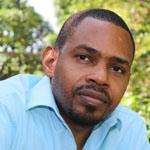
A few years ago I wrote an article exploring the issue of death and the wisdom that can be gleamed from it with thoughts from the book of Ecclesiastes and pronouncement Solomon makes of explaining that death is the end of all men and the living take it to heart.
I wrote that article then mainly, because I felt like the fragility of life and the propensity to overlook thinking about it to be high. Often times it is during loss and death that we pause and consider. It is a reality that will always be with us; even now during this pandemic and even with the tragic deaths in the United States.
The above posture is as true then-when I wrote the article- and it is true now. There is also one other thing that is true of death that I want to explore; the fact that we fear it. In the letter to the Hebrews, the writer mentions this as he speaks of the work of Christ
“...Since therefore the children share in flesh and blood, he himself likewise partook of the same things, that through death he might destroy the one who has the power of death, that is, the devil, and deliver all those who through fear of death were subject to lifelong slavery” (Hebrews 2:14-15ESV).
The above passage affirms the human reality we all face in light of death; we consider it, but we also fear it. In Shakespeare’s Julius Caesar as well, after the conspirators murder Caesar and they all stand over the body, Cassius makes the following statement that cements the point “...why, he that cuts off twenty years of life cuts off so many years of fearing death”.
It is my hope to share with you reader why I believe we fear death and what I believe rescues us to not have “fear in death”.
I have always thought that much of what we believe about life rises and falls on the existence of God; the big questions that we ask and the answers that are given.
At times we can think that the questions are separate, but it comes back to that belief; for instance, in my last article I looked on the fact that we all affirm that good can come from bad experiences; our real struggle is that a God who exists as all powerful allowed that to happen, so the ultimate question then is more about God and who we understand him to be.
Similarly I think in questions of life and death, the existence of God arises as the crux of the matter; consider what Ivan says in the Brothers Karamazov that essentially without God and the future life, everything is permitted then; Ivan’s thought reveals just how much a view on the existence of God informs how we view life, allowance and restriction.
I would suggest to you that it also leads to how we view life after. The question of Gods existence speaks not just to who God is, but also the fact that everything doesn’t just start with us and end with us, there is something more.
I believe this is at the heart of why we fear death. It is the unknown beyond this life, when all we have known and believe exists in this life: our smiles and cries, the things we have overcome and gained; why would I want to leave that?
How difficult it must be to live a full life and then let it go because of death. I think another aspect of the unknown that scares us, is how and when we will die. None of these we have control and knowledge over, so we can’t plan for it as we wish- that I know can be very unsettling and scary.
There is an assurance; however, that we are given to deliver us from this fear. In the last paragraph I mentioned that when we die, it can be that we are leaving all we have known; but what if we are taught that life is more than what we are experiencing now? What if this life is but a blip and eternity lies before us?
What I believe helps us in our fear of death is exactly the above; the understanding that this life is not all that there is and the life that is promised to us is a life filled with newness. It is no wonder that in light of understanding this that men and women during the persecution in the early church welcomed death and saw it as “sleep” since they trusted in the promise that because Jesus lived, they also would live.
It is Paul the apostles central point in his letter to the Corinthians when some argued that the dead do not raise; his argument was that Christ is indeed risen and 500 or more persons saw this to verify it as an actual occurrence; and if this happened the implication then is
“Death is swallowed up in victory. O death, where is your victory? O death, where is your sting? The sting of death is sin, and the power of sin is the law.But thanks be to God, who gives us the victory through our Lord Jesus Christ” (1 Corinthians 15 verses 54-57 ESV).
How then should we live now? We have a basis to live free from this fear in light of the certainty of death; because though we don’t know when and how we may die, we can know for sure of eternity and we can rest assured that this life is not all that there is. This view helps us in any fear we may have now, but it also helps us not worry and cling to things too tightly because we fear what we will lose. Indeed because of what Christ has done, and putting our trust in this work, we can live a life where there is “no fear in death”.

Paul Lewis is a Staff Worker for Universities and Colleges Christian Fellowship in Kingston Jamaica, where he also resides. He has aspirations of becoming a Christian Apologist and he loves reading especially topics like: History, Philosophy and Theology. You can follow him on twitter @VeritasDeiVinci